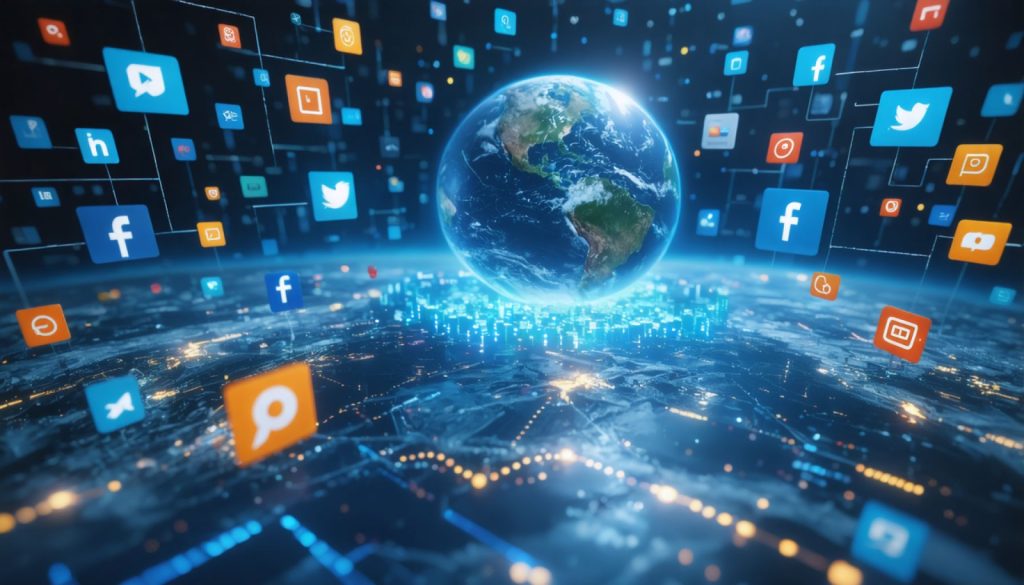
- Senator Warren and Apple CEO Tim Cook’s clash over “influence-peddling” highlights the intertwining of politics and big tech.
- Trade tensions with China create significant impacts on supply chains and investor sentiments, underscoring the need for diplomatic resolutions.
- Tech giants like Alphabet Inc., T-Mobile, and IBM show resilience with strong earnings, surpassing market expectations.
- Apple faces supply challenges for the iPhone 17 due to material scarcity, affecting availability.
- Innovations such as Neuralink’s brain-computer interface and Microsoft’s enhanced 365 Copilot app push technological boundaries.
- Automotive leaders Tesla and Nio adapt strategies to enter new markets and address environmental considerations.
- Overall, the narrative emphasizes a blend of innovation, diplomacy, and resilience amidst geopolitical and supply chain challenges.
The ceaseless dance of commerce and innovation took center stage as giants of technology and manufacturing navigated the stormy seas of international trade relations. At the heart of this tempest lies a heated exchange between Senator Elizabeth Warren and Apple CEO Tim Cook. Accusations of “influence-peddling” with the former Trump administration have thrust Apple into the limelight, raising questions about the intertwining of politics and big tech.
While tensions brew over trade negotiations with China, Wall Street feels the undercurrent of apprehension. Dan Ives, a seasoned tech analyst, signals the urgency for resolution in these talks, recognizing the delicate balance between two global superpowers. The stakes are high as this tug-of-war impacts supply chains and investor sentiments alike.
Amidst the geopolitical friction, renowned tech companies are unveiling stories of resilience. Alphabet Inc. buoyed market spirits with a robust first-quarter performance, boasting revenue up 12% year-over-year, vastly surpassing expectations. T-Mobile and IBM echoed this strength as they posted earnings that defied analyst projections, demonstrating the indefatigable nature of technological evolution.
In the midst of this fervor, Apple confronts another challenge with the anticipated iPhone 17 series. A scarcity of critical materials threatens stock availability, painting a picture of strained supply lines. This scarcity extends into the broader tech ecosystem, with Tesla’s ambitious production goals for their humanoid robots encountering hurdles due to China’s export restrictions.
Meanwhile, the allure of innovation remains undeniable. Elon Musk’s Neuralink promises transformative capabilities with its brain-computer interfaces, suggesting a future where the blind might see again. This narrative of pushing boundaries is mirrored by Microsoft, as they unveil a refreshed and intuitive version of their Microsoft 365 Copilot app, embodying the constant march toward user-centric design.
Amid these technological strides, automotive giants like Tesla and Nio recalibrate their strategies. Tesla ventures into autonomous ride-hailing in bustling American cities, while Chinese EV manufacturers like BYD and Nio pivot to conquer new European markets, driven by evolving automotive needs and environmental considerations.
The overarching narrative is one of resilience and innovation, even as companies navigate the unpredictable waters of international trade and supply chain challenges. These developments illuminate the interconnected web of modern commerce, where geopolitical anxieties and technological leaps coexist, painting a vivid tapestry of the future.
As these economic titans forge ahead, the ultimate takeaway emphasizes the indomitable spirit of innovation and the necessity for delicate diplomacy in ensuring prosperity amid uncertainty.
The Power Struggle Between Big Tech and Politics: What’s Next for Apple and Other Giants?
Navigating the Intersection of Politics and Technology
The intricate dance between tech giants and politics continues to capture global interest, especially under the spotlight of recent accusations against Apple for “influence-peddling” with the Trump administration. This incident raises broader questions about the ethics of political influence within the tech industry, as well as the ramifications for Apple and its global operations.
The Implications for Apple
1. Reputation Management: Apple, known for its pristine brand image, now faces the challenge of maintaining consumer trust amidst these allegations. This could impact market perceptions and lead to increased scrutiny from regulators worldwide.
2. Supply Chain Vulnerabilities: Amidst the accusations and other geopolitical tensions, Apple’s reliance on Chinese manufacturing could be scrutinized, potentially urging the company to diversify its supply chain to mitigate risks.
How Geopolitical Tensions Affect the Tech Scene
As Dan Ives emphasizes, the ongoing trade tensions with China have wide-reaching implications:
1. Investor Sentiment: Wall Street’s nervousness underscores the need for a resolution to trade talks, which could significantly alter valuations of multinational tech companies.
2. Supply Chain Impact: Companies across various sectors are feeling the pinch as critical components face delays due to export restrictions, affecting product launches and innovation cycles.
Innovations and Their Real-World Applications
Despite challenges, innovation continues to thrive, making waves across markets:
– Neuralink’s Visionary Goals: Elon Musk’s Neuralink suggests a revolutionary path for medical advancements, potentially allowing those with disabilities to regain functionalities, such as sight. As the technology advances, ethical considerations and regulatory approvals will play a crucial role in its adoption.
– Microsoft 365 Copilot: Continues to redefine productivity tools with enhanced user-centric design, improving workflows in both personal and professional domains. This highlights the ongoing trend of integrating AI into everyday applications.
Automotive Sector Adaptations
In response to market dynamics:
– Tesla’s Expansion: By entering autonomous ride-hailing, Tesla aims to leverage its existing infrastructure to create new revenue streams while promoting sustainable urban transport solutions.
– Chinese EVs in Europe: As EV manufacturers like BYD and Nio expand into Europe, they are set to meet the rising demand for eco-friendly vehicles, contributing to global sustainability goals.
Actionable Insights for Businesses
1. Diversify Supply Chains: Companies should consider diversified manufacturing locations to minimize geopolitical risks.
2. Invest in Innovation: Continual investment in research and development can serve as a buffer against market volatility, ensuring competitive advantage.
3. Engage in Ethical Practices: Keeping transparency and ethical standards at the forefront can bolster trust and prevent reputational damage.
Market Forecasts and Predictions
– Tech Growth: Sectors like AI, biotechnology, and renewable energy are expected to see significant advancements and investments in the coming years, offering lucrative opportunities for forward-thinking entrepreneurs and investors.
– Environmental Focus: Consumers will increasingly favor companies that align with environmental sustainability, suggesting a strategic pivot for incumbents wishing to remain competitive.
For further insights into technological trends and predictions, explore more at TechCrunch, a reliable source for the latest in tech and innovation.



